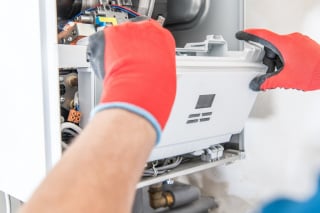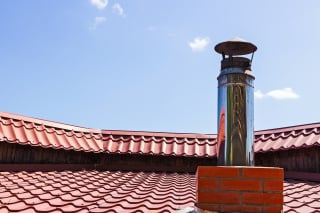The modern HVAC system is one of the most dependable systems in your home or business as it provides both heating and cooling as the season demands to keep you comfortable. Your furnace is the warming half of your HVAC system, and it can perform reliably for years without much trouble. Fortunately, your furnace doesn’t often demand your attention as it operates quietly and efficiently when you need it most. However, there are a few routine maintenance tasks that must be performed on your furnace regularly to ensure that it keeps pumping out warmth to increase your comfort during the winter months.

As steadfast and dependable as your HVAC system is, regular maintenance should be conducted before seasons of heavy use to ensure trouble-free operation. Though some tasks, such as changing the air filter, are easy enough for the average homeowner to perform, there are other maintenance tasks that are best left to professionals specializing in heating and air in Dacula, GA. Keep reading for a checklist of critical furnace maintenance tasks that should be performed before the coldest months of the year.
Clean Burners
Gas furnaces burn natural gas to generate the heat that’s used to warm air in the house. Natural gas burns cleanly as a rule, but over time and heavy use, carbon deposits can build up on burner jets, clogging the tiny holes. That will cause the burner to be less efficient, which can hamper warming of the air and drive energy bills higher. Your burners should be inspected for carbon buildup and, if necessary, removed and cleaned regularly.
Heat Exchanger Inspection
Your heat exchanger is the component in your furnace that allows heat generated through combustion to interface with the air that’s being warmed, hence the name. As your unit ages, the frequent heating and cooling and subsequent expansion and contraction of the heat exchanger can lead to tiny fissures that eventually become larger cracks. When those cracks develop, they can allow dangerous fumes from combustion to leak into the air that will be pushed back into your living space. Therefore, it’s important to have a professional regularly inspect the heat exchanger to ensure that it isn’t damaged before periods of heavy use.
Fan Switch Adjustment
The fan switch in your HVAC system is the component that controls when your blower fan kicks on and off. If it seems to cycle on and off quickly during furnace operation, or if there is a delay between the time that your furnace turns off and the blower ceases to run, the fan switch may be the culprit. A professional heating and air-conditioning service provider can inspect the switch and make the proper adjustment, which will prevent the fan from running needlessly and save you money on energy bills.
Flue Pipe Inspection
Burning anything in an unventilated area is generally a dangerous practice. However, your furnace can safely burn natural gas thanks to the presence of a flue, a vent that acts like a chimney that draws the byproducts of combustion, such as carbon dioxide and carbon monoxide, out of the home. Like any chimney, however, the flue can become clogged, or it can become perforated by rust or corrosion. In either case, the results can be dangerous as poisonous fumes can intermingle with your interior air. Have a professional inspect the flue annually to ensure there are no clogs or holes.

Check Belts and Pulleys
Your furnace itself doesn’t contain belts and pulleys, but the mechanisms that move the air your furnace warms depend on belts and pulleys to do their jobs. Your fan belts can become worn or cracked over time, which can cause them to fail. The same is true for the pulleys, as bearings can freeze up or begin to disintegrate. In either case, bad belts and pulleys can hurt the efficiency of your system by moving less air and reducing circulation. A professional tech can inspect the belts and pulleys and replace them if necessary.
Before the winter cold sets in and your furnace becomes critical to your comfort, have a heating and air company perform these routine maintenance tasks on your system. Some will help your system run more efficiently while others have safety ramifications. For more furnace maintenance checklist tasks, contact Triad Mechanical at (770) 682-0075.
